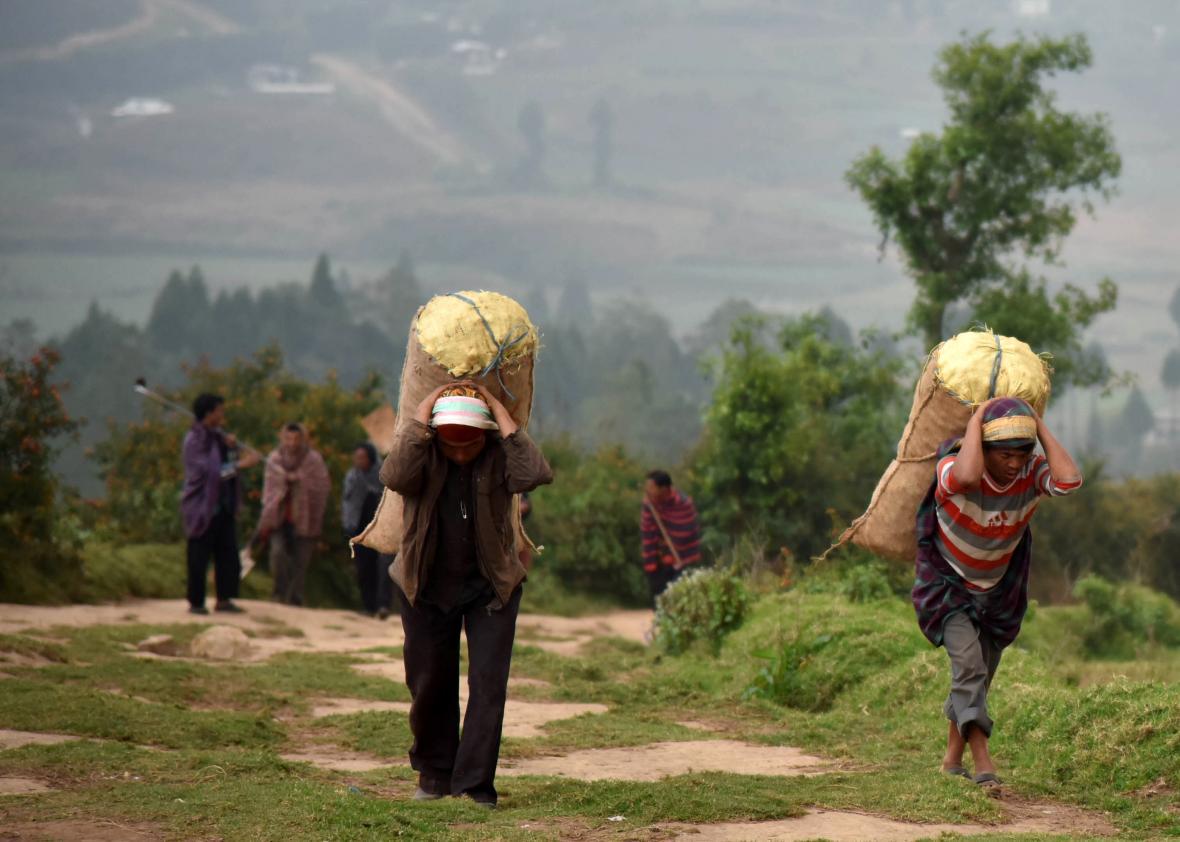With the Paris climate summit now in full swing, details about the final agreement that will define the trajectory of the world economy and the planet’s atmosphere are slowly beginning to emerge. And a single country—India—may hold more sway over what that final deal will look like than any other.
Though the world’s island nations and other extremely vulnerable countries have the most to lose from unchecked global warming, India’s not far behind. Earlier this year, India suffered one of the worst heat waves in world history—hot enough to melt the pavement at one intersection in New Delhi. Back-to-back failures of the critical monsoon rains—the most important weather event in the world—have crippled the country’s vast rural economy. Forecasters are calling for another weak monsoon in 2016, due to the current record-breaking El Niño in the Pacific.
At the same time, India is on pace to triple its CO2 emissions over the next 15 years, passing the United States as the world’s second-largest emitter (behind China) by 2030. Yet one-quarter of the country’s vast population—the equivalent of everyone living in the United States—still has no access to electricity at all.
To ensure it’s able to provide basic services to more of its citizens, India is rapidly expanding its coal sector and has made no firm pledge of when it aims to peak emissions, but the U.S. still burns five times as much coal as India on a per-person basis. That juxtaposition—as both a victim and driver of climate change—gives India a great deal of negotiating power in Paris. While it may seem that India is trying to have it both ways, the country is a nearly ideal representative to speak on the entire planet’s behalf.
Though much attention has been given to the key role of the emerging U.S.-China alliance on climate change, it’s the Indian prime minster who has stolen the show so far in Paris. On the summit’s opening day, Narendra Modi appeared with French President François Hollande to announce an initiative that could mobilize as much as $1 trillion for renewable energy investment in poor countries by 2030. Modi also joined Bill Gates and Barack Obama to announce a momentous surge in funding for basic energy research over the next five years. On the same day, the New York Times ran an article saying that Modi’s actions could make or break Obama’s climate change legacy. And that’s true.
Of course, one of the sticking points in Paris is where that kind of money will come from. On Wednesday, Ajay Mathur, one of India’s lead negotiators, made a shrewd and brilliant pledge: We’ll cut back on our coal use if the rest of the world helps fund our transition to renewables. The lead U.S. negotiator, Todd Stern, joined activist groups in welcoming the comments as productive.
And now, heavy rains in southern India over the last several days have created a new disaster and urgency in the Indian delegation in Paris. The country’s fourth-largest city, Chennai, has been virtually isolated by floodwaters, placing the nation’s military on a “war footing” in its response and prompting stunning acts of heroism to rescue survivors. Chennai, a city of 4.4 million, received 34 times its normal rainfall on Wednesday alone—so disruptive that its daily newspaper was not published for the first time since 1878 because its staff could not reach the press. The rains are expected to continue throughout early December. India’s chief meteorologist has said the recent extreme weather events “fit the larger picture of climate change.” Modi has publicly backed the climate linkage.
Because of disasters like these, India joins the sinking island nations on the moral high ground. Modi’s address to world leaders on Monday included frequent mention of “climate justice”: After wealthy Western countries like the U.S. and Germany have dominated the global economy (and carbon emissions) for hundreds of years, why should the burden to clean up the atmosphere fall to poorer—but quickly growing—economies like India? Yet, in many ways, India is becoming a clean-energy leader all the same. We could only be so lucky to see India run the show for the rest of the Paris summit.
